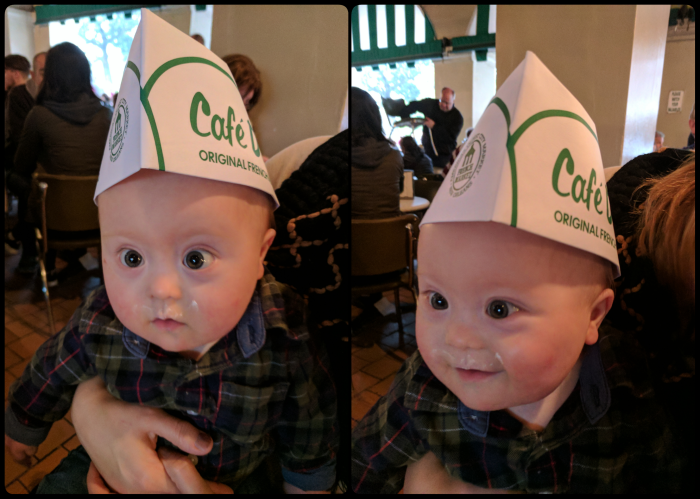
My son is 2 years old. He has Down syndrome, so we have been teaching him sign language to help with his communication. He has learned quite a few signs which he can competently use. Verbally, he only says a couple of words right now. One of them is my name. And he says it a lot.
“Dad-dee! Dad-dee!”
That’s what I heard when I walked through the front door after work yesterday.
I often hear it when I am on the phone with my wife and he realizes that I’m the person on the other end of the line.
Or when he wakes up and is ready for someone to come get him out of his crib.
Or when we’re sitting on the floor playing with his toys. He’ll address me while showing off what he’s working on. He wants me to see what he is doing.
It seems that I may be his favorite person right now. I’m sure that won’t always be the case. One day, he’ll realize that I’m actually a pretty average guy. Or he’ll understand that my wife is indeed the superior parent. But I’m going to enjoy being his hero for as long as possible.
When we received his prenatal diagnosis around the half-way point of my wife’s pregnancy, I wondered what it would be like to parent a child with Down syndrome. All I really had to go on were stereotypes and outdated information. I had ideas and dreams about the life my son would live, but that was when I assumed he would be a typical child. Now that I knew he had a disability, I figured life would be much different.
And I suppose it has been. And it will continue to be. But I dare say that this is probably the case for most dads. Whether your child has a disability or not, you likely have at least some dreams and ambitions for his or her life that will not be shared by your child.
It’s a familiar story. We’ve all seen the tropes play out in movies and on tv shows: The jock dad who doesn’t get his book worm son. The corporate-minded parent with the free-spirited child. The parent who expects their child will go to college, but whose child is not interested in academics. It’s familiar because it’s reality. We aren’t in control of what our kids will be like.
I certainly did not plan for my son to have Down syndrome. I did not expect for him to be developmentally delayed. I did not dream of all of us learning sign language together. There is a lot about my son’s life that I did not dream of or plan on or expect.
I don’t know what my son will grow up to become. I don’t know what all his interests will be. I don’t know if he’ll go to college or get married. Basically, I am in the same boat as any parent who is honest with themselves about their child’s future.
But believe it or not, I was right about some of the things I expected when I began dreaming about raising my son.
I expected a son I could play games with. Do you know what I got? A son who loves to roll his ball back and forth with me.
And I hoped that my son would like animals. I definitely got that one right.
I dreamed of going out in nature with him. My little guy loves playing in his tent and going outside for walks. I bet we’ll have camping trips and hikes in our future.
I looked forward to taking him to church and sharing my faith with him. He may not understand my beliefs yet, but he certainly loves going to church and participating in worship services.
You see, people with Down syndrome are, as the saying goes, more like the rest of us than they are different. Sure, life with my son isn’t exactly what I expected, but I am willing to bet that I would say the same thing if he hadn’t been born with that extra chromosome.
If you are expecting a child (with or without a disability like Down syndrome), prepare to be flexible. But more importantly, prepare to appreciate the uniqueness of your child.
In the event that Down syndrome is going to part of your child’s life, please don’t assume that things will be bad. Different? Probably. But bad? Absolutely not. Your baby will be just like any other child. They will play, laugh, cry, snuggle, dance, and all of the other things that babies typically do.
When I come home after work and see my son, I am overjoyed. Not because he has Down syndrome or in spite of the fact that he has Down syndrome. I am overjoyed because I know that he is my son and because he knows that I am his dad.
He makes sure I know that too. He’s the only person who addresses me as “Dad-dee”.







